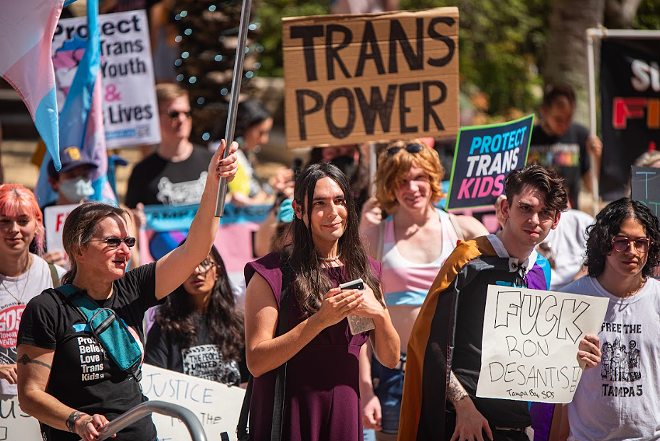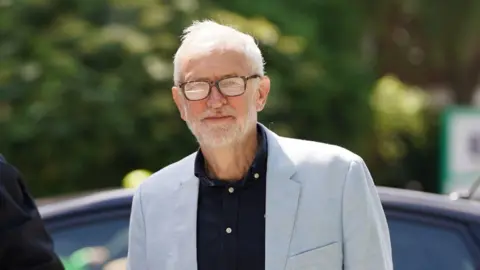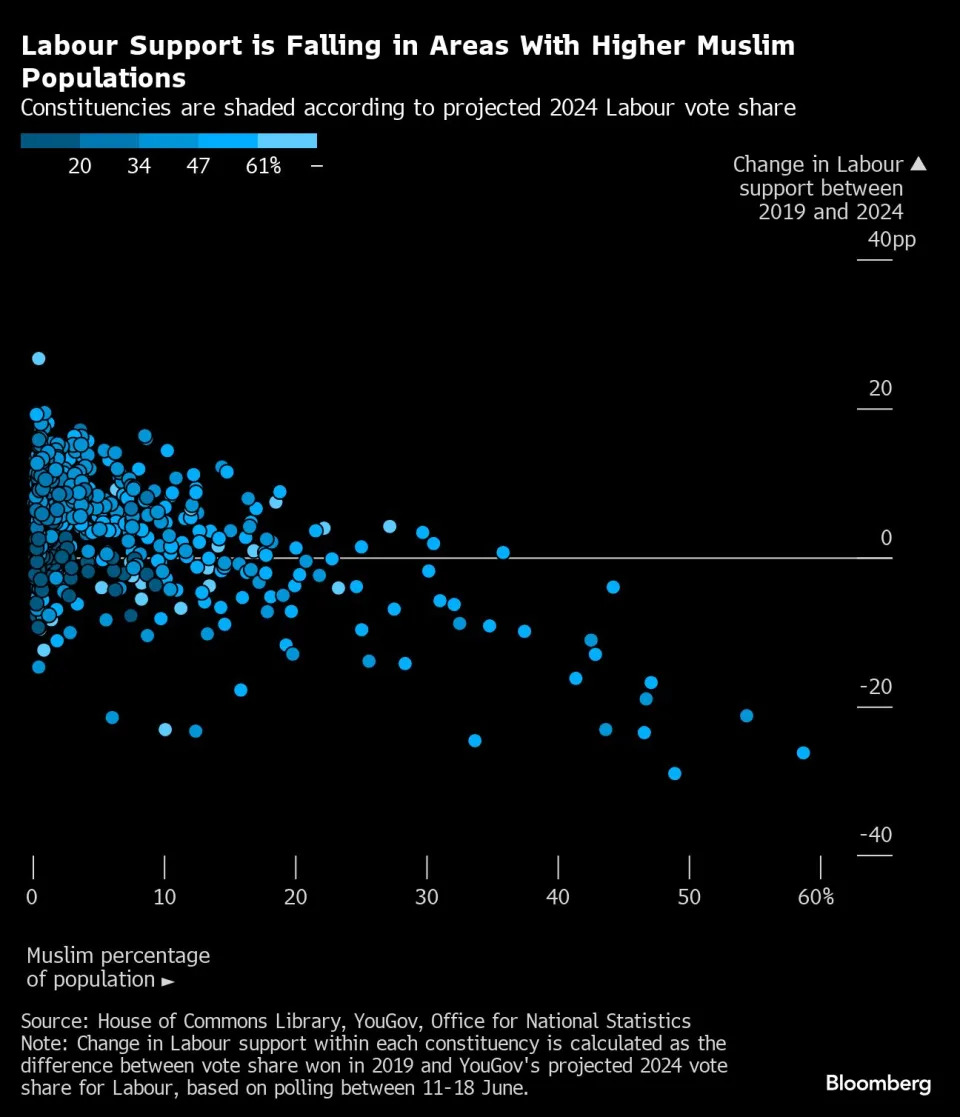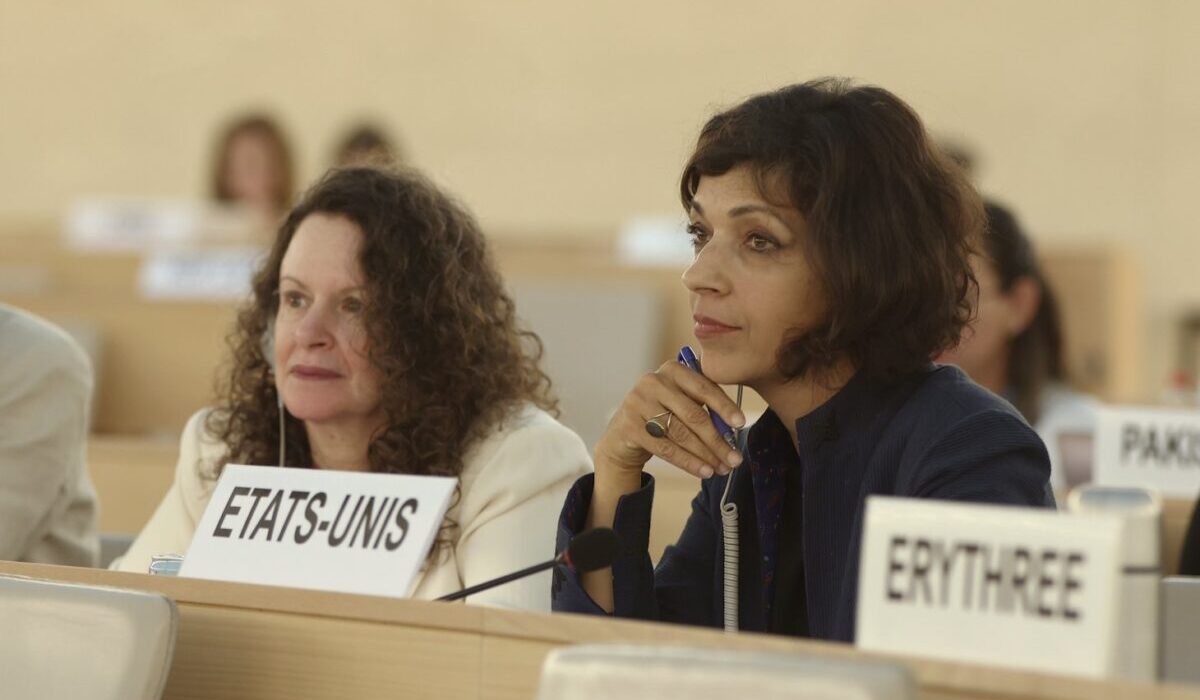Matt Keeley, The New Civil Rights Movement
June 29, 2024

Texas Supreme Court (AFP)
The lone justice to dissent called the Texas Supreme Court ruling to uphold the ban on gender-affirming care for minors "cruel" and "unconstitutional" Friday.
The Texas Supreme Court, currently made up of all Republican justices, decided 8-1 to uphold a ban on providing gender-affirming care, including puberty blockers, to transgender people under the age of 18. The Court said that it did "not attempt to identify the most appropriate treatment for a child suffering from gender dysphoria," claiming it to be a "complicated question" for doctors and legislators.
The Court ruled that even though "fit parents have a fundamental interest in directing the care, custody, and control of their children free from government interference," that interest is bound by "the Legislature’s authority to regulate the practice of medicine."
READ MORE: Republican Gov. Mike DeWine Vetoes Anti-Trans Bill After Talking to Families With Trans Kids
"[W]e conclude the Legislature made a permissible, rational policy choice to limit the types of available medical procedures for children, particularly in light of the relative nascency of both gender dysphoria and its various modes of treatment and the Legislature’s express constitutional authority to regulate the practice of medicine," Justice Rebeca Aizpuru Huddle wrote.
Justice Debra Lehrmann, the only justice to dissent, was clear in her disagreement. She wrote that the decision means "the State can usurp parental authority to follow a physician’s advice regarding their own children’s medical needs." Lehrmann identified that gender-affirming care can be "lifesaving."
She also mocked the idea that the Court's ruling didn't "deprive children diagnosed with gender dysphoria of appropriate treatment." Lehrmann pointed out that by upholding the law, it "effectively forecloses all medical treatment options that are currently available to these children ... under the guise that depriving parents of access to these treatments is no different than prohibiting parents from allowing their children to get tattoos."
"The law is not only cruel—it is unconstitutional," she wrote, calling the ban a "hatchet, not a scalpel."
Lehrmann also put the lie to the claims by anti-LGBTQ activists that surgery is common for transgender minors.
"Indeed, the leading medical associations in this field do not recommend surgical intervention before adulthood. Without a doubt, the removal of a young child’s genitalia is something that neither the conventional medical community nor conscientious parents would condone," she wrote. "Moreover, medical experts do not recommend that any medical intervention ... be undertaken before the onset of puberty."
Lehrmann is correct. Prior to puberty, transgender care is basically limited to social changes. For example, wearing gender-affirming clothing and using appropriate pronouns, according to Advocates for Trans Equality.
Puberty blockers can be prescribed for those who are starting puberty. Puberty blockers are safe, according to Cedars-Sinai, and are not only used for transgender youth. A common purpose is to stop precocious puberty, which affects 1 in 5,000 children, including children as young as 6. For both transgender youth and kids going through precocious puberty, puberty blockers are known to improve patients' mental health, according to the Mayo Clinic.
Puberty blockers are also fully reversible. However, in terms of trans youth, a study published in The Lancet found that 98% of those on puberty blockers went on hormone replacement therapy upon turning 18. But even for those few teens who realize after being on puberty blockers that they aren't trans, all they have to do is stop taking them, and their puberty will progress as normal.
Continuation of gender-affirming hormones in transgender people starting puberty suppression in adolescence: a cohort study in the Netherlands
Sabine Elisabeth Hannema, PhD
Daniel Tatting Klink, PhD
Prof Martin den Heijer, PhD
Chantal Maria Wiepjes, PhD
Published:October 20, 2022
VOLUME 6, ISSUE 12, P869-875, DECEMBER 2022
Summary
Background
In the Netherlands, treatment with puberty suppression is available to transgender adolescents younger than age 18 years. When gender dysphoria persists testosterone or oestradiol can be added as gender-affirming hormones in young people who go on to transition. We investigated the proportion of people who continued gender-affirming hormone treatment at follow-up after having started puberty suppression and gender-affirming hormone treatment in adolescence.
Methods
In this cohort study, we used data from the Amsterdam Cohort of Gender dysphoria (ACOG), which included people who visited the gender identity clinic of the Amsterdam UMC, location Vrije Universiteit Medisch Centrum, Netherlands, for gender dysphoria. People with disorders of sex development were not included in the ACOG. We included people who started medical treatment in adolescence with a gonadotropin-releasing hormone agonist (GnRHa) to suppress puberty before the age of 18 years and used GnRHa for a minimum duration of 3 months before addition of gender-affirming hormones. We linked this data to a nationwide prescription registry supplied by Statistics Netherlands (Centraal Bureau voor de Statistiek) to check for a prescription for gender-affirming hormones at follow-up. The main outcome of this study was a prescription for gender-affirming hormones at the end of data collection (Dec 31, 2018). Data were analysed using Cox regression to identify possible determinants associated with a higher risk of stopping gender-affirming hormone treatment.
Findings
720 people were included, of whom 220 (31%) were assigned male at birth and 500 (69%) were assigned female at birth. At the start of GnRHa treatment, the median age was 14·1 (IQR 13·0–16·3) years for people assigned male at birth and 16·0 (14·1–16·9) years for people assigned female at birth. Median age at end of data collection was 20·2 (17·9–24·8) years for people assigned male at birth and 19·2 (17·8–22·0) years for those assigned female at birth. 704 (98%) people who had started gender-affirming medical treatment in adolescence continued to use gender-affirming hormones at follow-up. Age at first visit, year of first visit, age and puberty stage at start of GnRHa treatment, age at start of gender-affirming hormone treatment, year of start of gender-affirming hormone treatment, and gonadectomy were not associated with discontinuing gender-affirming hormones.
Interpretation
Most participants who started gender-affirming hormones in adolescence continued this treatment into adulthood. The continuation of treatment is reassuring considering the worries that people who started treatment in adolescence might discontinue gender-affirming treatment.
Funding
None.
The closely watched case is almost certain to affect similar laws in Florida and more than a dozen other states
By Dara Kam, News Service of Florida

Photo by Matthew LehmanThe U.S. Supreme Court on Monday agreed to decide whether a Tennessee law restricting puberty blockers and hormone therapy for transgender children is unconstitutional, in a closely watched case that is almost certain to affect similar laws in Florida and more than a dozen other states.
Justices will hear the case in the fall, with a decision likely coming in June or July 2025.
The Biden administration in November filed a petition asking the court to consider whether the Tennessee law, which blocks doctors from ordering puberty blockers and hormone therapy for minors with gender dysphoria, violates equal-protection rights and is sex-based discrimination because the treatments are available for other purposes.
The “court’s intervention is urgently needed because Tennessee’s law is part of a wave of similar bans preventing transgender adolescents from obtaining medical care that they, their parents, and their doctors have all concluded is necessary,” U.S. Department of Justice lawyers wrote in the petition.
Monday’s decision to take up the case, known as United States v. Skrmetti, comes amid conflicting lower-court decisions over similar restrictions enacted in Republican-led states, including Florida.
U.S. District Judge Robert Hinkle this month ruled that a 2023 Florida law and regulations prohibiting the use of puberty blockers and hormone therapy to treat children for gender dysphoria and making it harder for trans adults to access care are unconstitutionally discriminatory and were motivated by “animus” toward transgender people.
Hinkle permanently barred Florida health officials from enforcing the law, which also carried heavy sanctions and potential jail time for doctors who violated the restrictions.
In a 101-page ruling, the judge wrote that “gender identity is real” and likened opposition to transgender people to racism and misogyny.
“The state of Florida can regulate as needed but cannot flatly deny transgender individuals safe and effective medical treatment — treatment with medications routinely provided to others with the state’s full approval so long as the purpose is not to support the patient’s transgender identity,” Hinkle’s June 11 ruling said.
Lawyers for the state last week asked the 11th U.S. Circuit Court of Appeals to put a hold on Hinkle’s ruling while Florida’s appeal plays out. A June 18 notice of appeal, as is common, did not detail arguments the state will make at the Atlanta-based appeals court. But the motion for a stay raised a series of arguments, including that putting the ruling on hold would prevent “irreparable harm” to the state and be in the “public interest.”
The state’s motion also pointed to debate about transgender treatment for minors at appellate courts in other parts of the country.
“At the very least, all must agree that the legal issues aren’t clearcut,” the motion said.
Shannon Minter, an attorney who represents plaintiffs in the Florida lawsuit, called the Supreme Court’s decision to rule on the issue a “huge victory.”
“They don’t take very many cases. It’s an indication of how important this issue is, and it should give hope to families across the country. Our nation’s highest court recognizes the significance of this issue. Now is our chance to let them hear from these families,” Minter, legal director for the National Center for Lesbian Rights, told The News Service of Florida in a phone interview.
The Florida lawsuit, filed last year by the parents of two transgender children and a transgender man, almost certainly will be put on hold until the Supreme Court decides the Tennessee case, Minter predicted.
The Tennessee law, which focuses only on children, prohibits all medical treatments intended to allow “a minor to identify with, or live as, a purported identity inconsistent with the minor’s sex” or to treat “purported discomfort or distress from a discordance between the minor’s sex and asserted identity.”
U.S. District Judge Eli Richardson, who was appointed to the bench by former President Donald Trump, last year blocked the part of the Tennessee law that banned puberty blockers or hormone therapy. Richardson found that the ban violates constitutional guarantees of equal protection for people in similar situations, because it prohibits treatment for transgender adolescents that would be allowed for other adolescents.
But a split 6th U.S. Circuit Court of Appeals reversed Richardson’s ruling and reinstated Tennessee’s law and a similar prohibition in Kentucky. Plaintiffs in both cases, which the appeals court consolidated, and the Biden administration asked the Supreme Court to take up the issue.
The Supreme Court’s review “will bring much-needed clarity to whether the Constitution contains special protections for gender identity,” Tennessee Attorney General Jonathan Skrmetti said in a prepared statement.
"We fought hard to defend Tennessee's law protecting kids from irreversible gender treatments and secured a thoughtful and well-reasoned opinion from the Sixth Circuit. I look forward to finishing the fight in the United States Supreme Court,” he said.
The court’s decision to consider the case immediately drew widespread attention. But the pending review also created divisions within the LGBTQ legal community, especially among people wary of the conservative-leaning court.
Alejandra Caraballo, a transgender attorney who teaches at the Harvard Law School Cyberlaw Clinic, posted on X, that she thinks asking the Supreme Court to take up the issue “will turn out to be a generationally bad strategic mistake akin to Bowers v Hardwick,” referring to a 1986 Supreme Court ruling that said sodomy is not a constitutionally protected right and allowed states to outlaw it.
But Minter, who also represents plaintiffs in Kentucky’s lawsuit, said the issue is urgent and needs to be settled.
“We can’t let these incredibly harmful laws stay on the books, so really there’s no choice about the timing,” Minter told the News Service. “These laws are so damaging, so extreme, we have to challenge them and we’re doing so all across the country, generally with a lot of success, and when those victories are reversed by these appellate courts, we have to seek review.”
Minter also pointed to a 2020 decision by the Supreme Court in a case known as Bostock v. Clayton County establishing that discrimination against LGBTQ workers is unconstitutional.
“I am extremely optimistic about our chances in the Supreme Court. Yes, it is a conservative court. They have done many alarming things. At the same time, this is essentially the same court that decided the Bostock case very recently, and Bostock recognized that discrimination because a person is transgender is sex discrimination, and that is the main issue in this case,” he said.















 NEWSLETTERThe Bulletin
NEWSLETTERThe Bulletin Vice President Kamala Harris on June 24, 2024, in College Park, Maryland. A new flash poll found Harris is the most popular possible option to replace President Joe Biden at the top of the Democratic... More KEVIN DIETSCH/GETTY IMAGES
Vice President Kamala Harris on June 24, 2024, in College Park, Maryland. A new flash poll found Harris is the most popular possible option to replace President Joe Biden at the top of the Democratic... More KEVIN DIETSCH/GETTY IMAGES